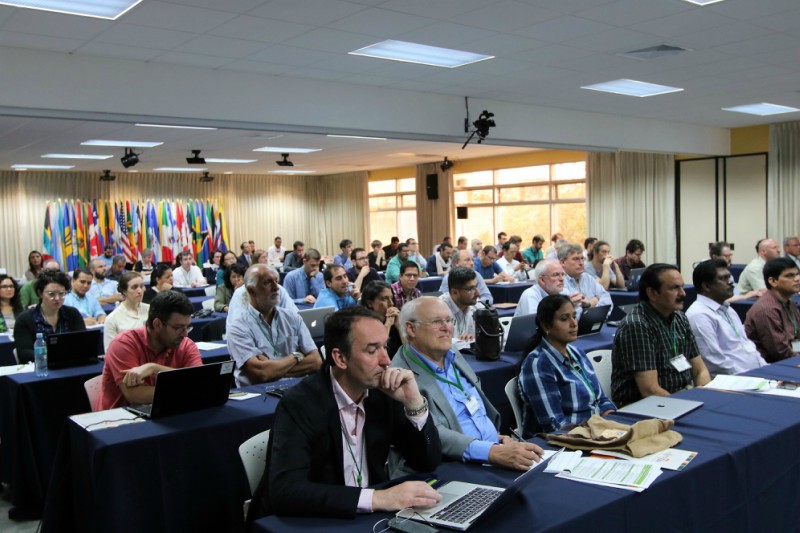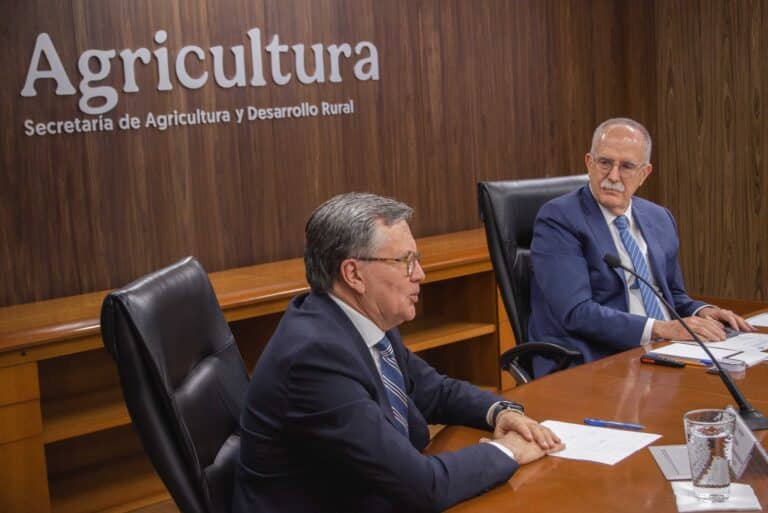At a global workshop hosted by IICA, close to 150 specialists from around the world agreed that research efforts should focus on integration of mitigation and adaptation, climate risk management and nutrition.

San José, 30 April 2018 (IICA). The primary challenges for scientific research in the near future in relation to global agriculture featured in the discussions of 150 specialists from five continents who gathered for the 7th Global Workshop of the Agricultural Model Intercomparison and Improvement Project (AgMIP), which was held at the Headquarters of the Inter-American Institute for Cooperation on Agriculture in San José, Costa Rica.
According to Peter Craurfurd, researcher from the International Maize and Wheat Improvement Center (CIMMYT), there are three major areas of opportunity on which research should focus: climate change mitigation and adaptation that responds to decision-making needs at all levels; integrated management of risks arising from climate variability, such as drought and floods; and the inclusion of food and nutritional security when analyzing the prospects for agriculture.
The first challenge is how to inform evidence-based action by governments in each country to transform the agricultural sector in order to achieve the development objectives for the sector in the face of climate change.
Craurfurd commented that “the challenge is how to ensure that scientific research supports countries in implementing adaptation and mitigation measures in accordance with international commitments such as the Paris Agreement and the Nationally Determined Contributions, but also in keeping with national planning strategies for public investment. Moreover, we must endeavor to establish a connection between our work and real political processes, ensuring that they lead to sustainability”.
Cynthia Rosenzweig, an American climatologist at the NASA Goddard Institute for Space Studies and member of AgMIP’s Executive Committee and Daniela Medina, IICA specialist in Agriculture and Climate Change concurred.
According to the specialists, the second challenge that research must overcome is how to improve immediate decision-making in managing climate variability, existing climate risks and extreme natural events and how to provide adequate information that could be infused into early warning systems and other immediate response mechanisms to prevent or reduce losses in the sector.
“We should calculate the risk to agriculture in the short-term, in particular for drought and productivity. Scientific data should be translated into decision-making support systems to allow the production system to mitigate these risks and to design integrated management strategies based on the most precise data available about the occurrence of events, such as drought and floods, for example”, said Rosenzweig.
On the other hand, Medina commented that the third critical area of focus is how to position the matter of food and nutritional security within the analyses to ensure that it is reflected in policies and actions that will undoubtedly be implemented in the field.

“When scientific analyses are being conducted, they tend to focus on productivity and on economic impact, while often failing to consider how all of these changes in production systems affect diets and consumption patterns, and on the other hand, how what people consume also influences the structure of production and food systems”, mentioned the IICA specialist.
She also added that including the connection to nutrition and human health in the analyses is a crucial step in ensuring that food systems are beneficial to human and environmental health.
To resolve these challenges, the experts agreed that scientific information should communicate effectively with governments and decision-makers to ensure that they understand the advantages and disadvantages of applying what the research, tools, infrastructure and resources indicate is required, so that those responsible for taking this knowledge into the field can share it with producers and that they in turn can offer feedback to help streamline research efforts.
The 7th AgMIP Global Workshop marked the first hosting of the event in Latin America and was co-organized by IICA. It included presentations on the latest advances in state of the art tools and methodologies that can prove useful in tackling the challenges faced by the agricultural sector.
Since its creation in 2010, AgMIP has focused its efforts on understanding how agriculture and food security are susceptible to global changes and how agricultural systems will respond to climate change and other socioeconomic factors in the coming years. The forum brings together experts, modeling tools, scales, scenarios, computational systems and analytical methods to enable integrated evaluation and the development of tools to support evidence-based decision-making.
More information:
Daniela Medina, IICA Specialist in Agriculture and Climate Change











